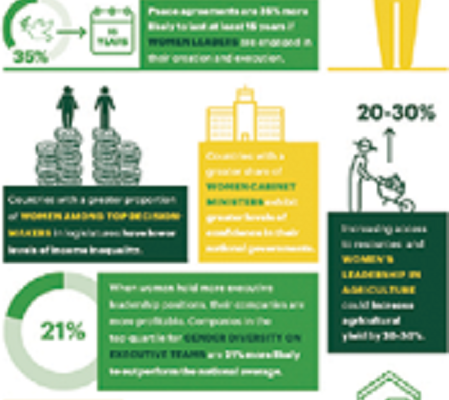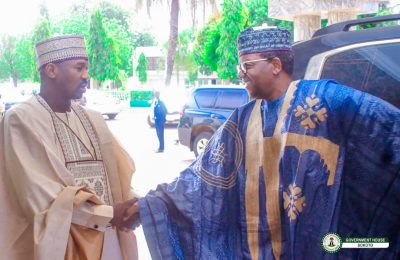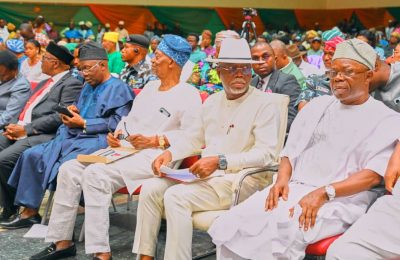
Across the world, the call for women to be given leadership positions has reached a crescendo and advocates have consistently argued that for communities across the globe to grow, the world must as a matter of priority, recognise the benefits of women in leadership.
And in Nigeria, while women are breaking glass ceilings in the field of business, academics and entrepreneurship, they are still not seen as serious or capable contenders in the realm of governance and politics and have been continually relegated to the role of appendages or sidekicks to men.

However, there have been identified benefits in placing more women in positions of power because women as leaders, possess a unique power; they are strong agents of change.
Aside the fact that involving more women in governance produces far-reaching benefits in terms of diversity and gender parity in leadership and decision-making, it also enhances development and creates for more holistic solutions to issues in all spheres.
According to experts, women as leaders and decision-makers are critical to advancing gender justice and gender equality and furthering economic, social and political progress across all spheres and at all levels.
If women are engaged meaningfully and adequately represented in leadership positions and policy making offices; legislatures, courts, executive boards, community councils, the bar and bench, policies and decisions are more likely to be inclusive, holistic, representative and will encapsulate diverse views from the society.
It has been proved by many researchers that women leadership in the household, including decision-making over land and household income, improves access to education and healthcare for their families.
Countries with a greater proportion of women as top decision-makers in legislatures have lower levels of income inequality.
Peace agreements are 35% more likely to last at least 15 years if women leaders are engaged in its creation and execution and when women are allowed to hold more executive leadership positions, their companies are more profitable and 21% more likely to outperform the national average.
But in spite of these benefits, women continue to be vastly under-represented in decision-making in politics, businesses, and communities. What is now the way forward so that the Nigerian society can operate at a level that explores individual capacity?
The major solution is the process of balancing power equation in leadership by elevating women in decision-making to benefit politics, businesses and communities as a whole.
This can be achieved mainly when every stakeholder and the community as a whole sincerely commits to gender parity in leadership and implement laws and regulations that guarantee a safe and open environment for women’s participation and leadership.
Also, there is need to establish policies and practices that encourage women’s leadership and promote gender parity, invest in and develop public services and programs that enable women to succeed as leaders.
Also, it is important to enable and support women’s organisations and movements and help change the narrative on women in leadership by confronting socio-cultural as well as religious and mythical drivers of gender inequality.







